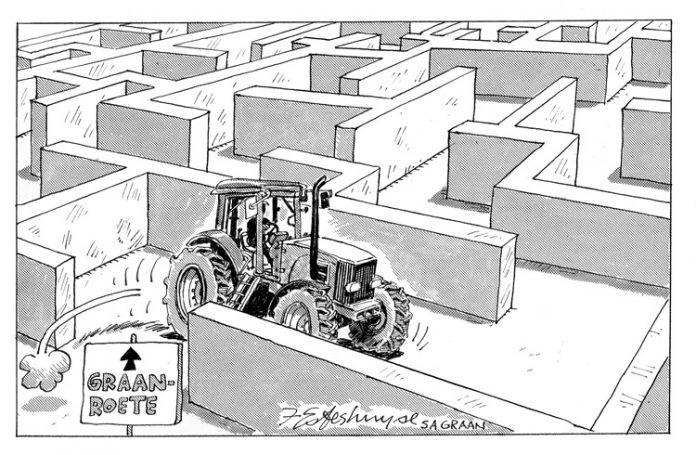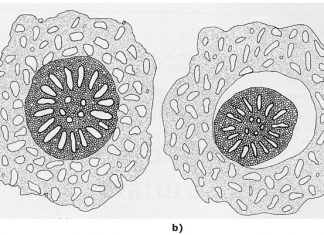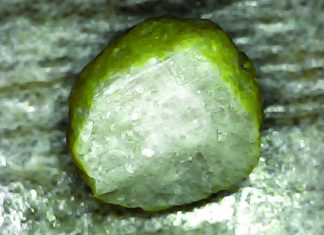April 2017
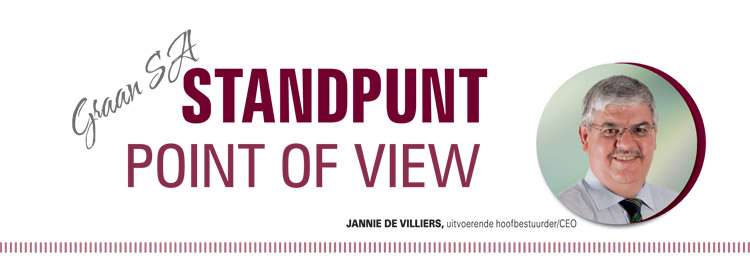
JANNIE DE VILLIERS, CEO
During last month’s Congress the Grain SA leadership endeavoured to demonstrate to producers that, due to a number of events and circumstances, the period of the free market as we have come to know it after the closure of all the Boards, has come to an end.
Maybe it is related to the drought; maybe it relates to Brexit or maybe to the new direction the American president is taking. Whatever the reason, grain production is in an era where there are not many known routes. That is what we as an organisation must now investigate and determine.
When one wanders in the forest and there is no path, there are a few important factors which will determine what the journey is going to be like. Firstly, you must have a very clear knowing of where you want to go. That, as an organisation, we have determined with our vision of sustainable grain production.
The next matter I thought about was the dangers of places we do not want to go or cannot go to: Those are the issues we as producers can do little or nothing about. They are the steep cliffs or big rivers – I perceive them as the current political environment.
We have noted that during the past twelve months there were a number of surprises regarding election results, but that is extremely difficult to control. Even the international economic circumstances and the exchange rate are matters Grain SA and its members can do very little about.
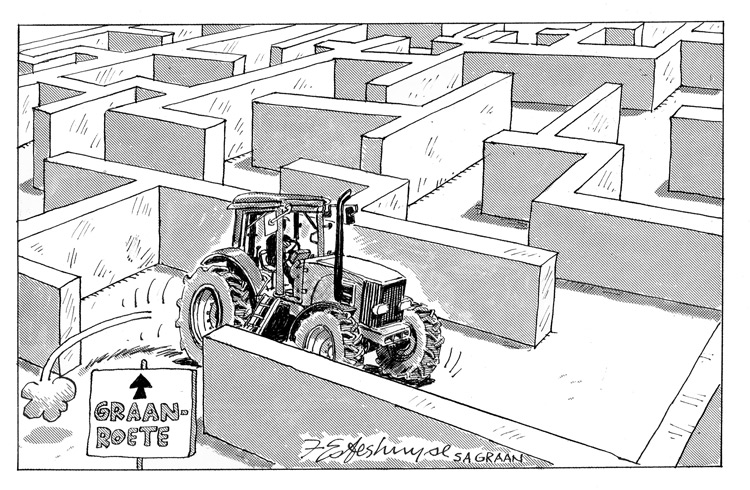
Then there are those places that are negotiable and which one can do something about: Over a hillock or through a ditch or just pushing aside some thorny branches allowing one to pass that way. For that we need leaders that have the ability to distinguish which issues we should take on and where we should not venture.
The way through a forest with no roads will also not be without scratches and sores, but if one persists and endures, we shall one day arrive at a new destination.
It was exactly the same in 1997 when we closed the Marketing Boards and embarked upon the wild ride of the free market. Leaders had no precise idea where the route would go, but eventually there was a road we could traverse more comfortably.
If I now ponder on issues that we as an organisation and our members can do something about, matters such as better research and improved market information come to mind. Training and developing our expertise are also important building blocks. However difficult it may be, we have to push on – up the hill – to improve the policy environment to enable sustainable production.
It was really encouraging that so many speakers at Congress acknowledged who is their Compass for the new route. We will never be able to pass through this ‘desert’ without the pillar of cloud during the day and the pillar of fire at night.
Our partners for this voyage which we have embarked upon, have also shown their true colours during the 2016 drought. They stood by us when the cliffs were terribly steep. I have already mentioned in the past that one does not need particularly strong leaders when the going is easy, but when it becomes difficult, we salute the men and women who raise their hands to take the lead.
Thank you also to those of you who took the role to encourage us when it was a really bad day at the office – even though you had an equally tough day on the farm. When we are once again appreciated among our own people who encourage us and dress our ‘wounds’, we are once again ready to attack the slopes and endeavour to find the route by which we can attain sustainability.
Finally, life has taught me that there are few places where the roads are downhill or level – it is mostly uphill. Therefore we are not looking for short cuts or downward slopes. It is either in the deepest of the gullies (the pain hereof cannot just continue) or the mountain tops that will give us the inspiration to struggle ahead.
All the best for the road with us.
Publication: April 2017
Section: Features



